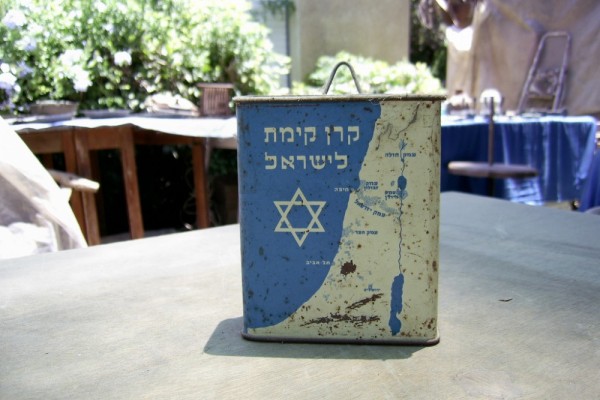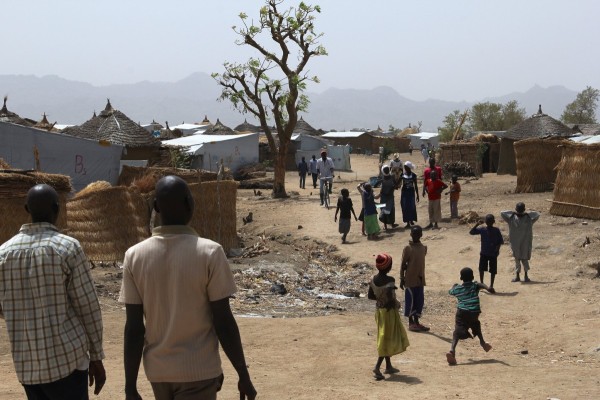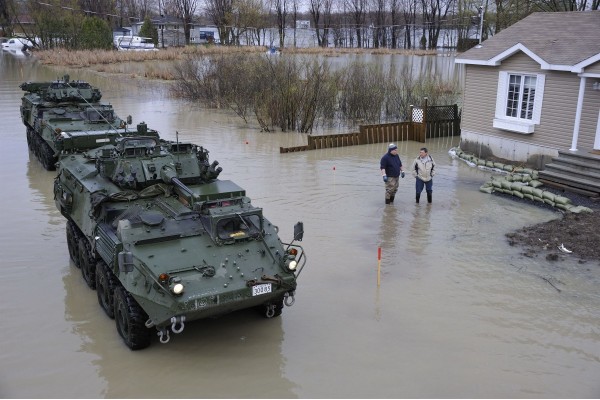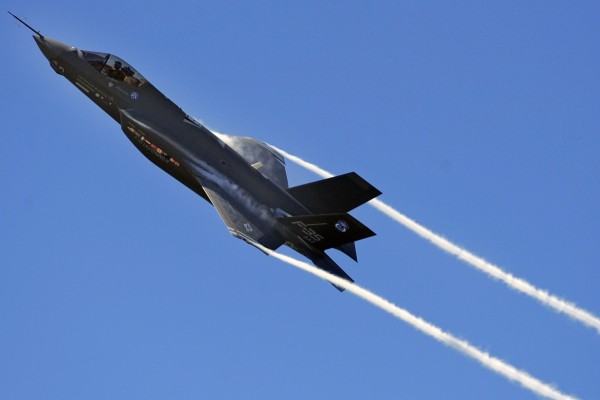Saudi Arabia is escalating its attacks on Yemen, and Canada is helping them do it
Canada’s involvement in the war on Yemen can be explained in two words: blood money

Aerial bombing of Sanaa, Yemen, by the Saudi-led coalition, March 2016. Photo by Fahd Sadi/Wikimedia Commons.
In the past few days, Saudi-led coalition forces have intensified their bombardment of the besieged population of Yemen. Casualty figures are difficult to verify. On January 23 the health ministry of the al-Ansar (or “Houthi”) government in Sanaa stated that at least 82 people were killed and 266 wounded in a single airstrike on a prison in the northern province of Saada, while law professor and Institute of Social Policy and Understanding researcher Khaled Beydoun puts the total number of deaths since January 21 at over 350. The number of casualties is especially difficult to confirm because Saudi-led forces destroyed a telecommunications tower in Hodeida, causing a nationwide internet blackout that means on-the-ground estimates cannot leave the country through the usual channels.
350+ people have died in Yemen in the last 24 hours. Many of them children. Children have been burying children for too long.
— Khaled Beydoun (@KhaledBeydoun) January 22, 2022
Yemen will need help, more than ever. To help with the medical response, GIVE at: https://t.co/HqBRJBO0aS @baitulmaal pic.twitter.com/1e5GRZYG8h
A United Nations report from November 2021 found that approximately 377,000 Yemenis have died from direct and indirect causes since the beginning of the war in 2014, while 15.6 million live in extreme poverty and entire swaths of the country struggle to survive on the verge of starvation. This famine is manmade, having been imposed on the people of Yemen by the Saudi government and its backers in Western states including the United States, the United Kingdom, and Canada.
Canada’s complicity in the war against the Yemeni people is material (weapons sales) and diplomatic (supporting the Saudi line on the conflict). Predictably, coverage of the recent bombardments in Canadian state media are devoid of any of the urgency that the Saudi-led assault demands, while instability in “enemy” states like Cuba, Venezuela, China, or Russia receive wall-to-wall CBC analysis from a wide range of “experts,” almost none of whom ever manage to contradict the line of the Canadian state and its allies abroad.
Irish MEP Mick Wallace recently asked the European Parliament, “How many times do we have to talk about the situation in Hong Kong? Yet, the Saudi/UAE genocidal war on Yemen hardly registers in here. Why? Because the US and EU are facilitating it.”
The reasons for Canada’s virtual silence on the war on Yemen are the same: for Canadian arms manufacturers and their allies in the capitalist state, the war has been a boon.
In 2016, Prime Minister Justin Trudeau approved a highly secretive $15 billion arms deal with Saudi Arabia, a deal that includes “heavy assault” vehicles, troop carriers, and other “combat-ready” arms. In 2018, the Canadian Commercial Corporation responded to inquiries about the gargantuan arms deal by saying that “all details of the contract remain commercially confidential.”
While former Prime Minister Stephen Harper has actually celebrated arms sales to Saudi Arabia, stating in October 2021 that he is “proud” of Canada’s cooperation with the Saudi government, Trudeau’s Liberals have reduced the vocal and unconditional support for the Saudis that characterized the Harper years. Nevertheless, the material realities of the Canadian state’s engagement with Saudi Arabia have remained the same. For example, the Trudeau government promised to review its arms sales to the kingdom in the aftermath of the Jamal Khashoggi murder. To the shock of no one, the Canadian state’s investigation of itself turned up no seedy details, and arms sales have continued. Meanwhile, the Trudeau government has ignored all public demands to establish an independent investigation into its export policies.
Canada sends $30-40 million in annual aid to Yemen. By contrast, Canada provides well over $1 billion in weapons to Saudi Arabia and the United Arab Emirates (the two Gulf kingdoms most involved in the anti-Houthi coalition) every year. In 2019, the Liberal government sent almost $3 billion in arms to Saudi Arabia. 2020 statistics on Canadian arms sales (the most recent ones available) show that the Canadian government approved $1.3 billion in arms sales to Saudi Arabia that year, far higher than all other non-US buyers combined.
Canada’s 2020 weapons sales to Saudi Arabia accounted for 67 percent of its sales to all non-US buyers, meaning that the Gulf kingdom is by far Canada’s largest buyer of arms outside the US military. Project Ploughshares reports that “fully 93.9 percent of [Canada’s] Saudi-bound exports were light armoured vehicles (LAVs) and their associated components, manufactured by General Dynamics Land Systems-Canada in London, Ontario.” Canadian-made LAVs have been used in Saudi offensives against Yemen, while the United Nations Group of Eminent Experts on Yemen directly blamed Canada’s weapons export policies for “helping to perpetuate” the war.
When I write that the Canadian government “approved” these arms sales to Saudi Arabia, I don’t mean they simply allowed them to proceed due to inaction. Following a review of export permits to Saudi Arabia from October 2018 to April 2020, former Minister of Foreign Affairs François-Philippe Champagne announced that the “department would resume the assessment of new export permits applications on a case-by-case basis,” as is customary with Canadian arms sales. This means that every single sale of weaponry to Saudi Arabia—as with sales to the UAE, Turkey, the US, the UK, and so on—are closely reviewed by the Global Affairs Canada and approved by the department’s leading minister. This means that any continuation of Canadian military support for the Saudi-led coalition is an active, conscious decision by the upper echelons of this country’s political class, all of whom are aware of the damage these exports cause.
Furthermore, the government is certainly aware they may be violating international law by facilitating these sales. An August 2021 report by Amnesty International Canada and Project Ploughshares accused the Trudeau government of flagrantly violating the Arms Trade Treaty (ATT), which it only signed in June 2019, making it one of the world’s latest signatories. The report asserts that “there is persuasive evidence that weapons exported from Canada to KSA [Kingdom of Saudi Arabia], including LAVs [light-armoured vehicles] and sniper rifles, have been diverted for use in the war in Yemen,” and that “it has been established through investigations and expert reports that Canadian weapons exports to [Saudi Arabia] are contrary to Canada’s legal obligations under the ATT.”
Not only may these arms sales violate international law—in another show of the hollowness of “Canadian democracy,” there has been virtually no public consultation on weapons sales to Saudi Arabia, and the latest multi-billion-dollar arms deal to the kingdom was essentially a non-issue during the two most recent federal elections. While the NDP publicly opposed the sale of combat vehicles to the Saudi government, party leader Jagmeet Singh did not make this opposition a central pillar of his campaign, and his quietude has helped the issue fade in the minds of many Canadian voters.
The fact that, after eight years of a brutal war of aggression perpetrated by the Saudi-led coalition, the Houthis remain in control of Sanaa reveals that the Saudis and their Western backers will not conquer Yemen. Resistance will continue, no matter how many new bombardments the Saudis lead, meaning that Canadian arms sales serve no purpose beyond wringing extra billions from a starving and brutalized population.
Canada’s involvement in the war on Yemen can be explained in two words: blood money. It is that simple, and there is no excuse for the federal government’s consistent facilitation of these weapons transactions, no matter how many pathetic justifications they conjure up. You can’t make nationwide famine disappear by insisting upon the importance of Canadian manufacturing jobs. You can’t eliminate the Houthis’ domestic popularity by blindly applying the “Iran-backed” descriptor to any discussion of their resistance. And Yemen can’t wait for the Liberal Party to grow a conscience.
Owen Schalk is a writer based in Winnipeg. His areas of interest include post-colonialism and the human impact of the global neoliberal economy. Visit his website at www.owenschalk.com.










